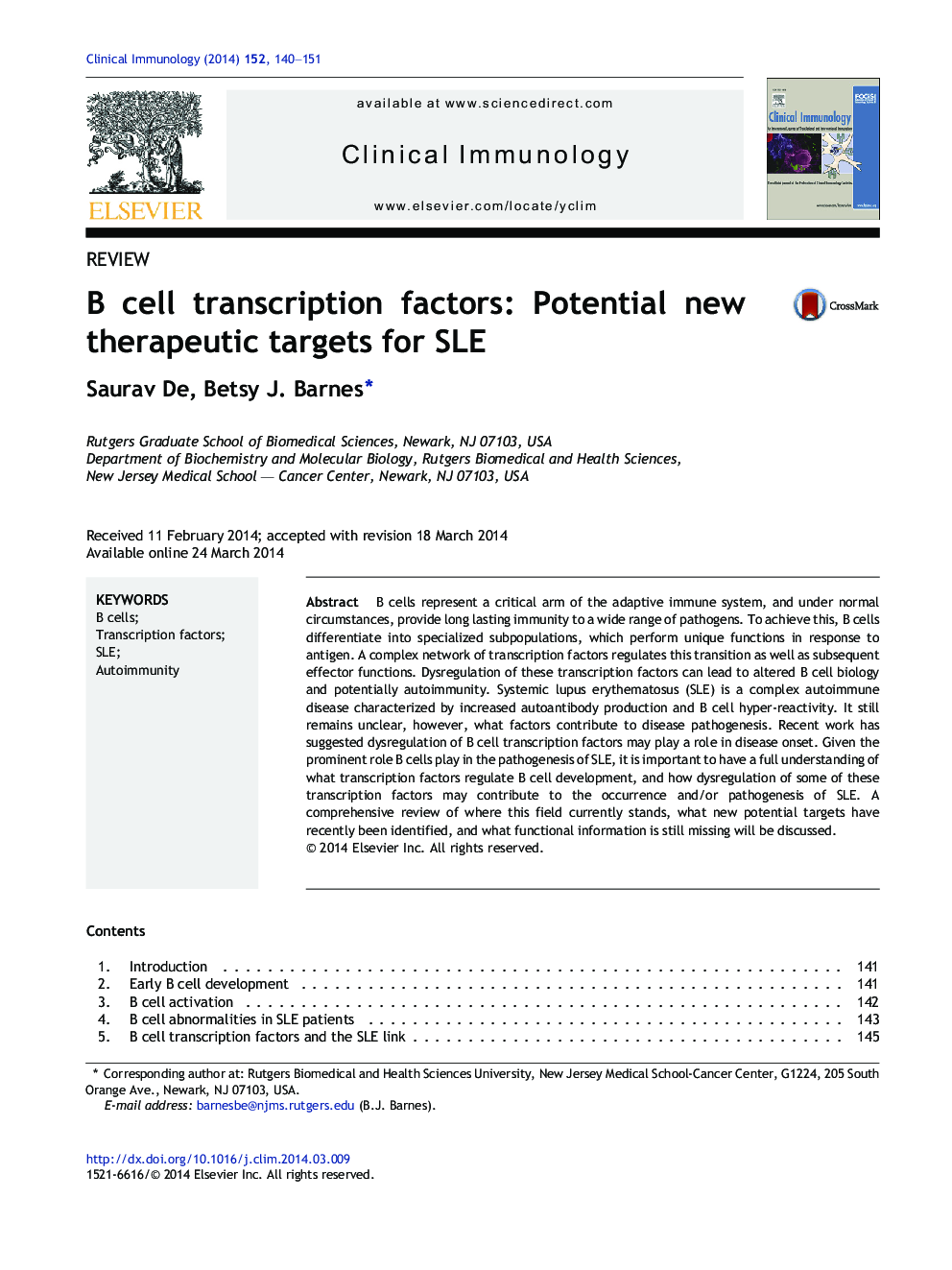| Article ID | Journal | Published Year | Pages | File Type |
|---|---|---|---|---|
| 6087537 | Clinical Immunology | 2014 | 12 Pages |
â¢A complex network of transcription factors regulates B cell differentiation and effector function.â¢Dysregulation of B cell transcription factors may play a role in SLE disease onset.â¢This review highlights recent findings in SLE B cell transcription factor dysregulation.â¢Reviews critical findings in both mouse and human B cell studies
B cells represent a critical arm of the adaptive immune system, and under normal circumstances, provide long lasting immunity to a wide range of pathogens. To achieve this, B cells differentiate into specialized subpopulations, which perform unique functions in response to antigen. A complex network of transcription factors regulates this transition as well as subsequent effector functions. Dysregulation of these transcription factors can lead to altered B cell biology and potentially autoimmunity. Systemic lupus erythematosus (SLE) is a complex autoimmune disease characterized by increased autoantibody production and B cell hyper-reactivity. It still remains unclear, however, what factors contribute to disease pathogenesis. Recent work has suggested dysregulation of B cell transcription factors may play a role in disease onset. Given the prominent role B cells play in the pathogenesis of SLE, it is important to have a full understanding of what transcription factors regulate B cell development, and how dysregulation of some of these transcription factors may contribute to the occurrence and/or pathogenesis of SLE. A comprehensive review of where this field currently stands, what new potential targets have recently been identified, and what functional information is still missing will be discussed.
